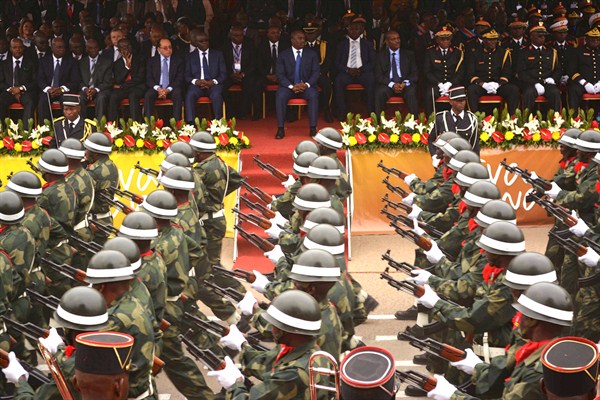Last month, more than 50 protesters were killed in two days of clashes with security forces in Kinshasa, the capital of the Democratic Republic of the Congo. The protesters had taken to the streets with a clear message: The country’s presidential election must be held as soon as possible, and President Joseph Kabila must step down on Dec. 19 when his term officially expires. Although the city’s authorities had authorized the demonstration, it was violently suppressed by the police and the republican guard.
Having lost faith in their government since the rigged 2011 elections when Kabila was controversially re-elected, the Congolese are running out of patience while Kabila tries to buy time in order to eventually change the constitution and run for a third term. But their desire for change is seemingly confronted by the ruling elite’s determination to ensure the status quo. Earlier this week, the Constitutional Court approved a request by the national electoral commission to postpone elections until 2018, a move that will likely result in more violence. Opposition parties began a nationwide strike Wednesday.
The resistance to democratic transfers of power is not unique to the DRC. It is a trend throughout Central and West Africa, where heads of states from Burundi to Togo have gone to great lengths, including the use of violence, to stay in office despite constitutional and institutional barriers. Maintaining their prestige is one of the many reasons why some public officials are hanging onto power. But the issue is much deeper than that. One cannot fully comprehend their obsession with staying in power without first analyzing the nature of politics in many of these countries.

